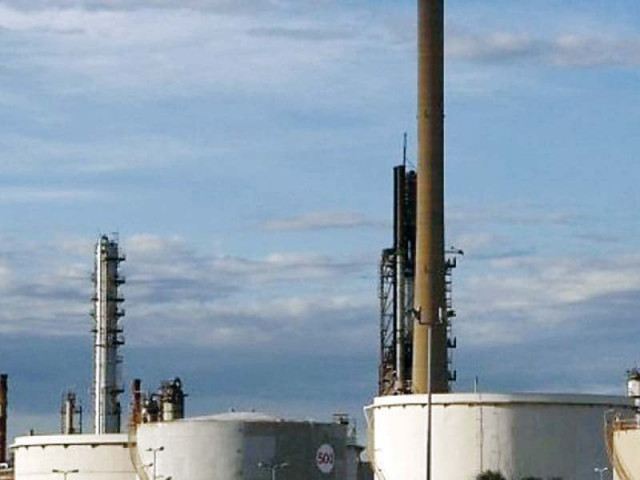PSO seeks to build storages, connect ports via pipeline
Sends plan to govt for approval and to ensure energy security

PSO meets energy needs of the country through a wide network of depots with a storage capacity of around one million tons, which constitutes around two-thirds of the storage capacity of all oil marketing companies. PHOTO: FILE
“A plan has been sent to the federal government, seeking go-ahead for constructing new oil storage facilities and connecting the two ports in Karachi through a pipeline,” said a senior PSO official while talking to The Express Tribune.
“The economy and energy security of Pakistan heavily depend on regular and sustainable supplies of imported fuels.”
Lng supply: ‘SNGPL has to pay Rs6.944b to PSO’
At present, the annual demand for petroleum products stands at around 23 million tons in the country and it is expected to touch 27 million tons by 2020.
Of the total volume, the demand for 10 million tons, or 44%, is met by domestic refineries whereas 13 million tons (56%) are imported.
More than two-thirds of the crude processed by local refineries is brought through imports. In financial year 2015, the refineries processed around 3.9 million tons (32%) of crude oil produced in the country and 8.2 million tons (68%) of imported oil.
PSO - the largest oil marketing company - meets energy needs of the country through a wide network of depots with a storage capacity of around one million tons, which constitutes around two-thirds of the storage capacity of all oil marketing companies.
The demand for premier motor gasoline (PMG) has shown unprecedented growth over the past many years in the country, which has increased five times from 1.15 million tons in financial year 2007 to 5.8 million tons in 2016.
Of the total PMG demand, only 1.6 million tons (28%) is produced in the country whereas 4.2 million tons (72%) are imported and handled at terminals at Karachi Port.
Piling debt: PSO receives Rs293b by power sector companies
However, according to the official, it has become extremely difficult for PSO to smoothly meet the demand and swiftly offload PMG from vessels carrying 50,000 tons or more because of lack of storages at the port. The current storage capacity is only 40,000 tons at Keamari, Karachi Port.
Moreover, due to jetty constraints at Port Qasim, the transport of PMG from Keamari to Port Qasim is also difficult.
In this scenario, he said, the supply chain of PMG and other fuels was increasingly at risk due to delay and crowding of vessels.
In an effort to tackle storage constraints which also led to the petrol crisis in January 2015, the Ministry of Petroleum and Natural Resources had asked PSO to enhance the PMG storage capacity to 150,000 tons - 100,000 tons in Karachi and 50,000 tons in the upcountry.
In response, PSO prepared a plan in July 2015 for enhancing the storage capacity to about 125,000 tons.
It asked the Ministry of Industries and Production to allow conversion of all non-dangerous product/heavy product storage tanks at Keamari Terminal-C (40,000 tons) into dangerous product tanks for storing PMG. Its approval has been received in two cases and another two are being reviewed.
Published in The Express Tribune, August 24th, 2016.
Like Business on Facebook, follow @TribuneBiz on Twitter to stay informed and join in the conversation.



















COMMENTS
Comments are moderated and generally will be posted if they are on-topic and not abusive.
For more information, please see our Comments FAQ